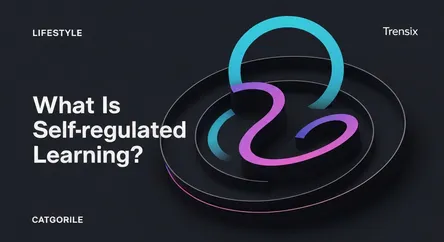Lifestyle
What Is Self-regulated Learning?

Explore self-regulated learning (SRL), the process where individuals actively manage and control their own learning to achieve their goals.
What is it?
Self-regulated Learning (SRL) is a proactive process where learners take control of their own educational journey. It's not just about study habits; it involves a cyclical process of goal setting, strategy selection, self-monitoring, and reflection. Learners actively manage their thoughts, behaviors, and emotions to navigate learning tasks effectively. This includes planning how to approach an assignment, monitoring their understanding as they work, and evaluating their performance afterward to adjust strategies for the future. It's the skill of learning how to learn.
Why is it trending?
The rise of online courses, remote work, and the demand for lifelong learning have pushed self-regulation to the forefront. In environments with less direct supervision, the ability to manage one's own progress is crucial. Modern educational philosophies are also shifting from teacher-centered instruction to student-centered approaches, empowering learners to take ownership. In a rapidly changing world, being a self-regulated learner is a key competency for continuous personal and professional development.
How does it affect people?
Developing SRL skills has a profound impact on individuals. It empowers students, leading to higher academic achievement, increased motivation, and greater confidence. They become more resilient and independent learners, capable of tackling complex challenges without constant guidance. Beyond the classroom, these skills translate into better time management, problem-solving, and adaptability in the workplace. It fundamentally equips people with the metacognitive tools needed to pursue knowledge and skills throughout their entire lives.